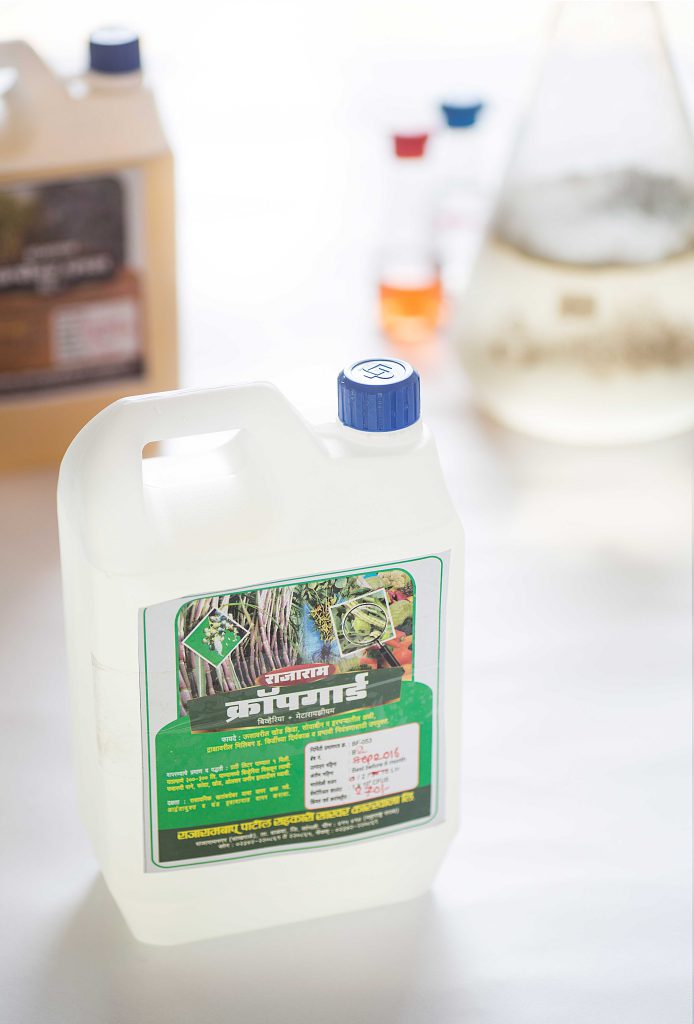
We proudly hold the distinction of being pioneers in Maharashtra for introducing the production of chemical fertilizers in liquid form. This initiative was fueled by our commitment to ensuring that essential pesticides reach our farmers easily and at the most competitive prices.
The benefits of this endeavor are twofold: we not only supply our farmers with vital resources, but we also engage in extensive export operations on a large scale. Our daily production of approximately 0.5 metric tons of chemical fertilizers serves as a testament to our dedication to fulfilling the needs of our agricultural sector.
Our product range encompasses 7 types of chemical fertilizers, each designed to address specific agricultural requirements:
- Rajaram Nitroplus (RN+): Vital for crop growth, nitrogen supports the synthesis of chlorophyll, enabling plants to utilize sunlight energy for sugar production. Rajaram Nitroplus stabilizes atmospheric nitrogen for crops to absorb effectively.
- Rajaram Phosphoplus (RP+): Dedicated to root health, this fertilizer promotes root growth,
enhances winter hardiness, and accelerates maturity. - Rhizobium (R+): Specially tailored for legumes like gram, soybeans, and alfalfa, this fertilizer stabilizes atmospheric nitrogen and delivers it to crops as ammonia through the action of rhizobia bacteria.
- Rajaram Compostplus (RC+): This fertilizer facilitates decomposition, converting farm waste materials into high-quality compost. It enriches soil fertility and enhances water retention capacity.
- Rajaram Cropguard: A standout product, Rajaram Cropguard is designed to counter white grub (Holotrichia serrata) infestations. By introducing a fungus that penetrates and eliminates the insect host, it prevents damage to plants caused by grub feeding.
- Rajaram Trichoplus: Tackling root diseases caused by fungi, Rajaram Trichoplus deploys a biocontrol agent, Trichoderma, which effectively combats root infections.
- Rajaram Azoto: A boon for crop growth, Azoto fixes atmospheric nitrogen, directly benefiting various crops like cereals, vegetables, fruits, sugarcane, and more. It also enhances seed germination rates by 20-30%.
Our commitment to innovation and practical solutions for farmers has garnered significant recognition, making us a driving force in the agriculture sector.

